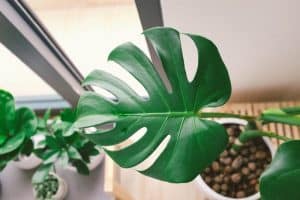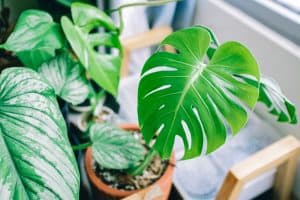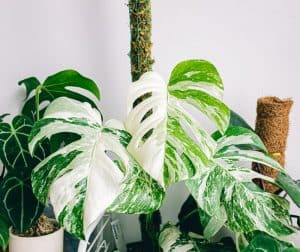If you are planning to add a Monstera to your plant collection, just like everyone else, first things first. You need to consider some really important things before you make a final decision, and one of these is none other than its potential toxicity. Are Monstera toxic to pets? Is it safe to grow one?
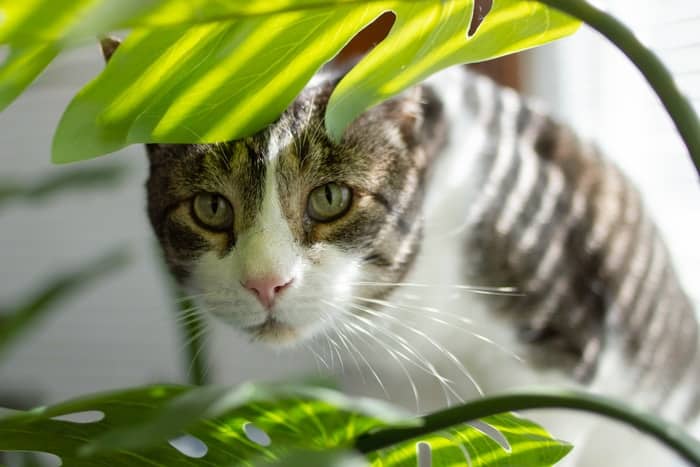
Monstera plants are beautifully unique but here’s the catch – they’re toxic. While eating small amounts of Monstera leaves may not be dangerous, consuming this plant is a no-no. This means that if you have pets that love nibbling on foliage, you need to keep Monstera plants away from or avoid growing them completely. When large quantities are consumed, these plants could do your pets some serious harm.
Are Monstera Toxic?
Unfortunately, Monstera plants happen to be toxic. No matter how popular and beautiful they are, you must know that these plants pose a potential threat not only to your pets but also to you and your family.
If you really want to grow them, treating them with caution is a must. You also need to make sure that you don’t let your house pets and young children get too near them.
Your pets and children may be exposed to harm if you don’t take the necessary precautions. It is also a wise idea to wash your hands properly after you touch, move, or prune your Monstera. This will ensure that you will wash off any remaining toxins on your skin without any risk of transferring them to your mouth.
These plants may not irritate your skin, but you still need to treat them with care. These are more dangerously toxic to dogs and cats than to humans. If you have fur babies, you need to be extra wary to keep these plants out of their reach.
Are Yellowed Monstera Leaves Less Poisonous?
There is a lot of debate surrounding whether or not yellowed monstera leaves are less poisonous. Some people believe that as the leaves get older, they lose their potency and can actually be more harmful to consume. Others maintain that the older the leaves are, the more potent they become. However, there is no definitive answer since the toxicity of a plant is dependent on many factors, including its age, location, and cultivation method.
Are Monstera Toxic to Dogs?
Yes, Monstera plants are toxic to dogs. If your pup eats plants regularly and loves to chew on your plants around the house, you need to take action to keep your Monstera out of his way. However, this might be easier said than done considering how large these plants can get.
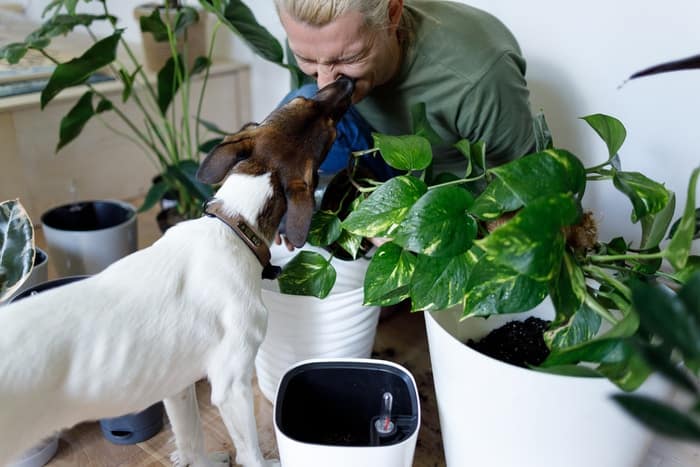
If possible, you can try placing your Monstera in another room. You can also train your pooch to stay away from the plant with a particular command. If both fail, it might be time to consider saying goodbye to your Monstera.
Are Monstera Toxic to Cats?
Yes, Monstera plants are also toxic to cats. You should never allow your feline friends to eat your Monstera. If your cat takes a keen interest in chewing and biting your plants, you might want to avoid getting a Monstera plant in the first place. The springy large leaves of this plant may attract a playful and curious feline and put your pet in danger.
Many cats will instantly stop biting the plant since it will sting inside the mouth. However, Monstera plants could be toxic when your cat continues eating them.
Since it is always better to be safe than sorry, don’t buy the plant if you already have a cat. But if you already have both, you don’t need to dispose of your Monstera unless your feline takes a serious interest in it.
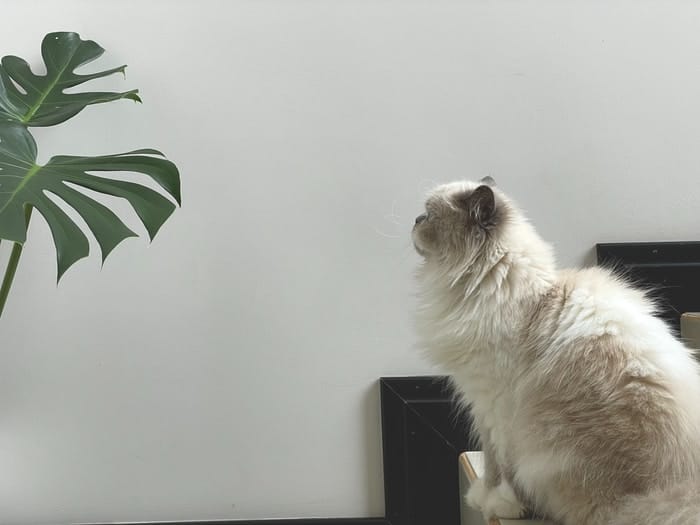
If possible, try moving it somewhere out of your cat’s space and keep a close eye on things. A water pistol may come in handy here to keep your cat away from the plant. If your cat is really set on munching on the leaves and it is impossible to block your pet’s access to it, getting rid of the plant might be your best option.
Why are Monstera Toxic to Pets?
Monstera plants are toxic to pets including cats and dogs due to their insoluble needle-like or sharp oxalate crystals, or the insoluble calcium oxalate called raphides. Once ingested or chewed, these will embed on mucous and can cause a burning sensation on the lips, mouth, tongue, or throat, and severe irritation.
Every part of a Monstera plant, including the leaves, stems, flowers, roots, or fruits is poisonous or toxic. This is also applicable to all of Monstera’s 45 species, which means that even Monstera deliciosa, split-leaf philodendron, or M. adansonii are toxic to pets.
While it is not a secret that fully ripened fruits of Monstera deliciosa are edible or non-toxic, you should never give these to your dogs or cats since these are not the healthiest treats for them.
But the severity of the symptoms can vary from plant to plant due to the differences in the crystals’ concentration. Although Monstera plants are considered mildly toxic, and not as toxic as Vinca, azalea, sago palm, snake plant, Amaryllis, and others, it doesn’t change the fact that they are still harmful.
As for severity, Monstera is at level 3 or 4, with level 1 plants being very toxic and might cause severe illness or worse, death. Level 2, on the other hand, is lowly poisonous which results in gastrointestinal problems and vomiting.
What to Do If Your Pet Nibbles on Your Monstera
If your pet got his mouth on your Monstera, don’t panic. There are some things you can do first:
- Check your pet and the inside of the mouth. Watch out for any swelling or redness. If everything seems fine, you probably don’t need to do anything else.
- If your pet seems to be in pain or you notice irritation, offer water or anything more enticing to encourage drinking. It will help wash off the crystals from your pet’s mouth. Rinsing your pet’s mouth can also do the trick.
- If your pet still seems suffering after you do the first two steps, or you are worried that the swelling will block your pet’s airway, go to the vet. They might offer additional treatment or administer a painkiller.
Monstera plants are very popular for a reason. But if you have pets in the house, you need to be extra careful because Monstera can be toxic for them.


